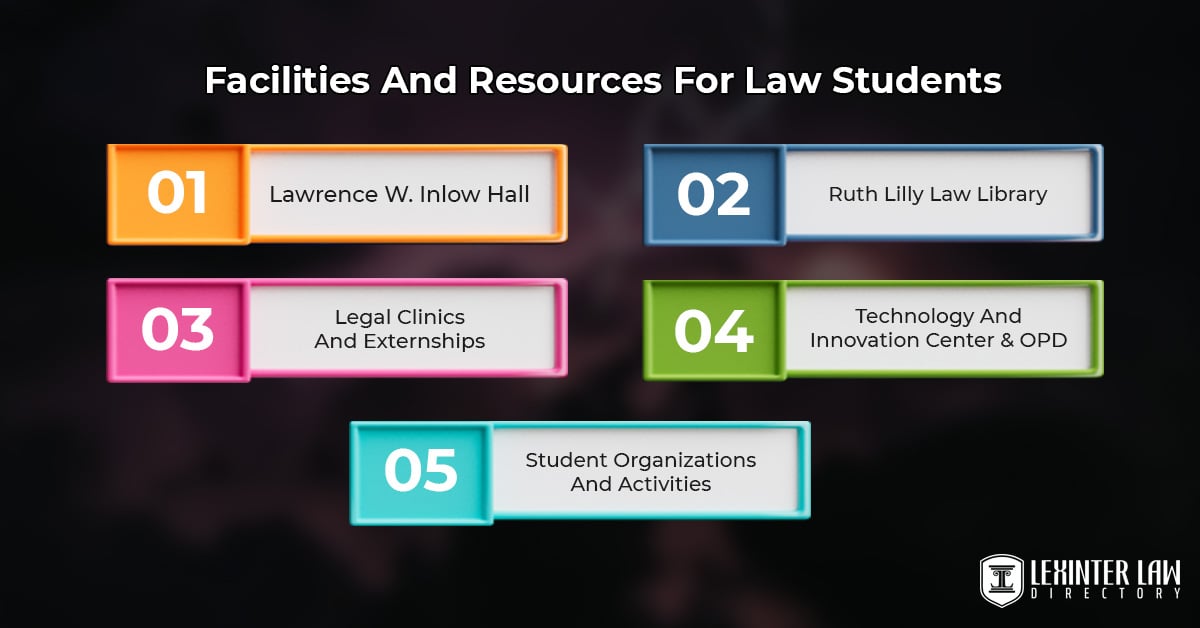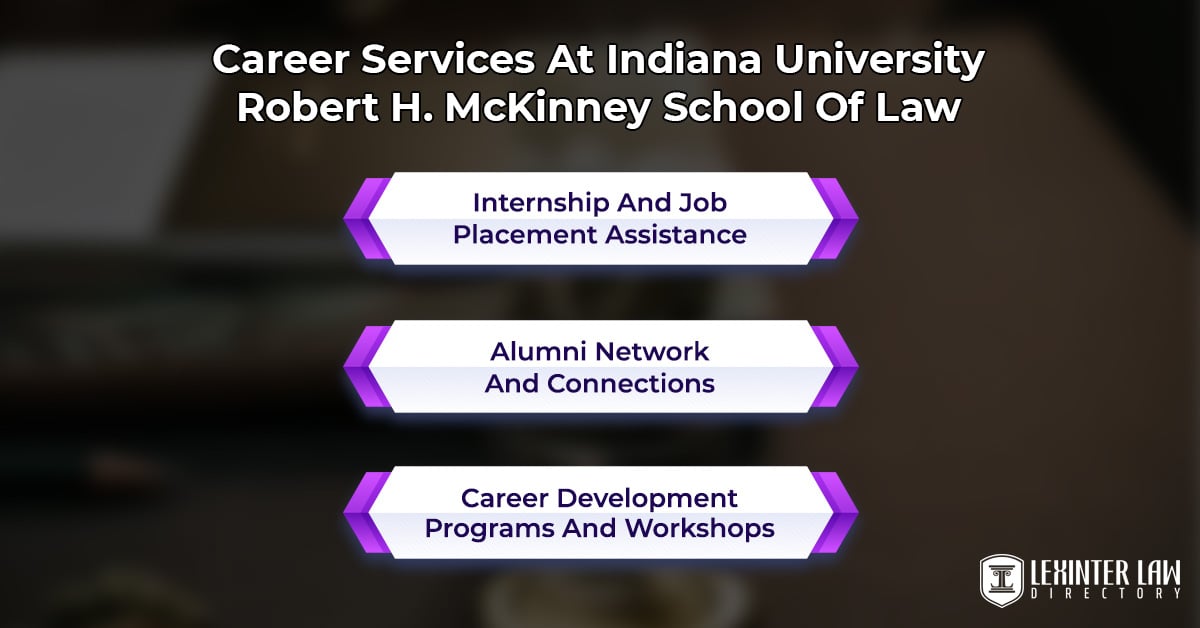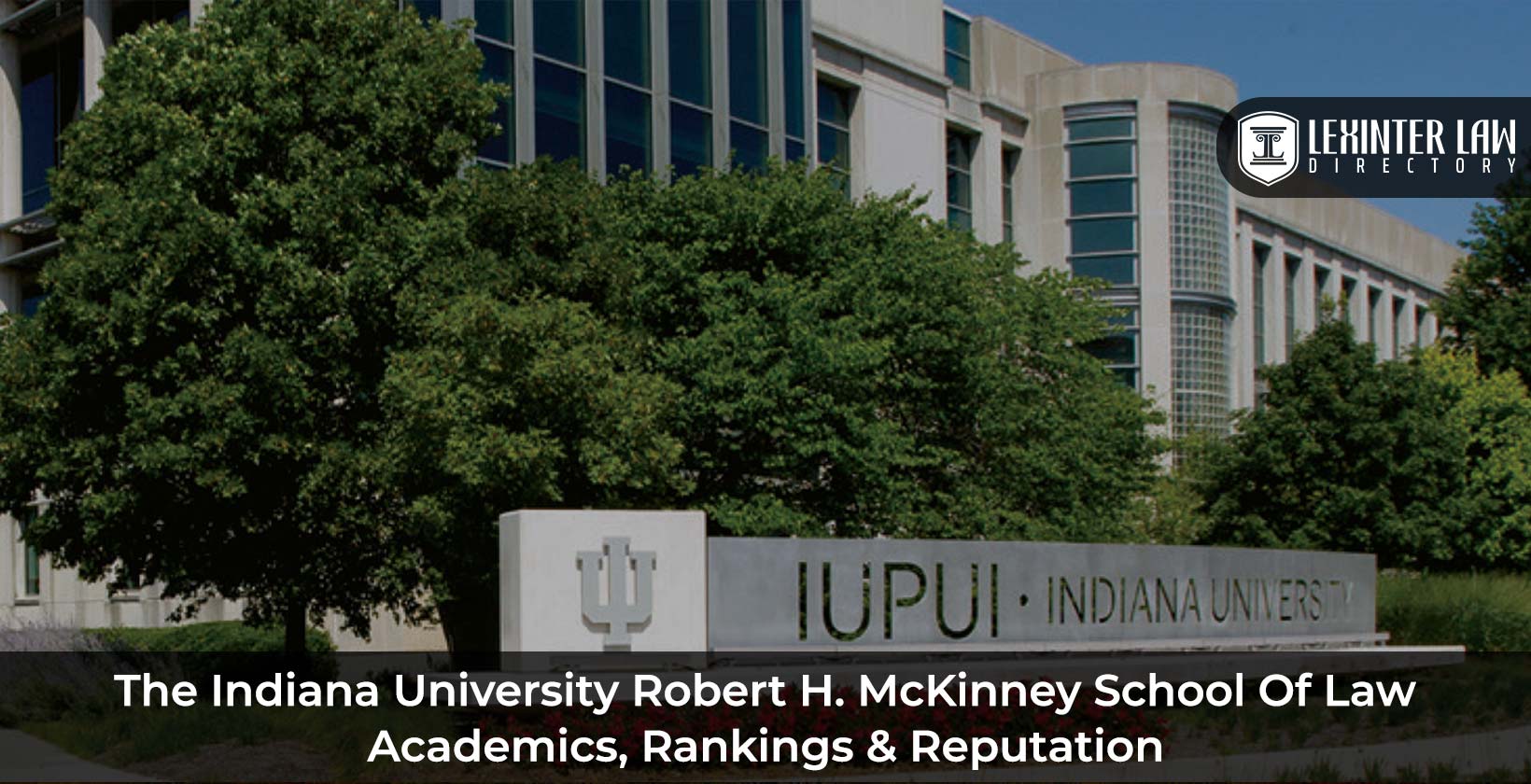The Indiana University Robert H. McKinney School Of Law : Academics, Rankings & Reputation
Indiana University Robert H. McKinney School of Law is a leading law school. Located in Indianapolis, it offers students a rich blend of academic rigor and practical experience. The school, named after a respected legal figure, Robert H. McKinney, provides diverse programs. These include healthcare law, environmental law, and intellectual property law.
The urban setting of the Indiana University Robert H. McKinney School of Law puts students right in the heart of legal action. Here, they engage directly with the law community. This interaction helps them gain real-world skills. McKinney School of Law focuses on shaping skilled, ethical lawyers ready to make a difference.
Table of Contents
- Location And Campus
- Facilities And Resources For Law Students
- Academic Programs
- Admissions At Indiana University Robert H. McKinney School Of Law
- Rankings And Reputation
- Campus Life At Indiana University Robert H. McKinney School Of Law
- Career Services At Indiana University Robert H. McKinney School Of Law
- Frequently Asked Questions About The Indiana University Robert H. McKinney School Of Law
- Conclusion
Location And Campus
The Indiana University Robert H. McKinney School of Law is located at Lawrence W. Inlow Hall, 530 W New York St, in downtown Indianapolis, on the urban Indiana University Indianapolis campus, offering direct proximity to courts, government centers, and civic life.
Address And Contact Information
Address: 530 W New York St, Indianapolis, IN 46202
Phone: 317‑274‑8523
Website: mckinneylaw.iu.edu
Serving as the primary academic hub at IU Indianapolis, McKinney Law combines professional legal training with urban resources.
Overview Of The Indianapolis Campus
Indiana University Indianapolis is a vibrant urban research university with a diverse student body. It emphasizes interdisciplinary learning, civic engagement, professional preparation, and community partnerships in the heart of Indiana’s capital city.
Close Proximity To Legal Institutions And Government Offices
IU McKinney Law lies steps from the Indiana Supreme Court, U.S. District Court (Southern District), and Indiana Statehouse. This prime location enhances experiential learning opportunities, internships, externships, and policy engagement projects for students.
A Thriving Cultural Scene
Downtown Indianapolis features museums such as the Eiteljorg, performing arts venues, concert halls, and local festivals. Students benefit from this cultural richness through off‑campus events, networking opportunities, and exposure to civic and artistic communities. The Indiana University Robert H. McKinney School of Law boasts a strong commitment to academic excellence.
A Strong Alumni Network
IU McKinney has over 13,000 alumni, many recognized for leadership across law and public service. In 2025, Hilary Barnes, J.D. ’13, co‑founded Hotel Tango Whiskey and serves as general counsel while practicing law; Christopher Creighton, J.D. ’17, now leads innovation at Marian University and advanced community revitalization. These alumni reflect McKinney’s commitment to civic leadership and professional excellence.
Facilities And Resources For Law Students

IU McKinney Law provides a cutting‑edge setting that supports rigorous training and professional growth. Students learn within modern classrooms, access advanced legal tools through the Ruth Lilly Law Library, and engage in clinics, externships, simulation experiences, and career support via the Office of Professional Development.
Lawrence W. Inlow Hall
Inlow Hall, completed in 2001, houses classrooms, faculty offices, study spaces, a moot courtroom, and the Ruth Lilly Law Library. Located opposite Military Park, its glass‑limestone architecture integrates with downtown Indianapolis. Recent renovations include a modern atrium and collaborative seating in the Steve Tuchman & Reed Bobrick Atrium to support student events and architectural prominence in the urban campus.
Ruth Lilly Law Library
The library holds over 600,000 volumes and electronic titles, offering LexisNexis, West resources, and specialized study aids. It features reserved silent quiet zones and reservable study rooms. After 6 pm, access is restricted to law‑card holders and authorized alumni or barristers. The facility supports interlibrary loan and includes full‑time reference librarians to assist with legal research.
Legal Clinics And Externships
Indiana University Robert H. McKinney School of Law offers more than ten live‑client clinics—including Child Advocacy, Immigration, Criminal Defense, Housing & Health Rights, REACH reentry clinics—and over 100 externship placements across courts, corporate counsel, public agencies, nonprofits, and legislative offices. Students must complete at least one clinic or externship (2+ credits) as part of the six‑credit experiential learning requirement.
Technology And Innovation Center & OPD
Students access practice management software and legal research platforms via the library’s digital systems. The Office of Professional Development (OPD) is located in Inlow Hall and offers in‑house career coaching, McKinney Works job portal, résumé workshops, interview prep, and on‑campus recruiting to support career readiness for students and alumni.
Student Organizations And Activities
McKinney Law hosts a dynamic student community, including the Health Law Society, Criminal Law Society, Moot Court, Law Reviews, and rural justice and public interest groups. Through simulation courses, seminars, and co‑curricular programs, students build practical skills and leadership. The Hall Center for Law & Health facilitates health law certificate programming and event engagement in public policy.
Academic Programs
IU McKinney offers a dynamic portfolio of academic programs tailored to meet evolving legal challenges and diverse career paths. The school emphasizes both doctrinal learning and applied experience, with structured pathways to practice readiness. Programs span foundational J.D. studies, specialized LL.M. and S.J.D. offerings, and interdisciplinary dual-degree tracks in business, health, and public policy.
Juris Doctor (J.D.) Program
The J.D. program at IU McKinney offers full-time and evening part-time formats to accommodate working professionals and traditional students. Foundational courses include civil procedure, contracts, criminal law, and legal writing, with advanced electives spanning health law, corporate governance, environmental law, and intellectual property. Students must complete six experiential credits via clinics, externships, or simulations.
The curriculum emphasizes real-world readiness. Students participate in moot court, legal writing competitions, and Bar prep programming. A flexible structure enables certificate completion in areas such as environmental law, health law, and international law, enhancing both specialization and employability.
LL.M. And S.J.D. Programs
McKinney’s LL.M. program offers concentrations in American law, health law, intellectual property, international law, and corporate law. The program earned an A+ ranking from International Jurist in 2025 for curriculum strength and alumni outcomes. It attracts both domestic and international attorneys seeking career advancement or Bar eligibility in select U.S. jurisdictions.
The S.J.D., the school’s most advanced research degree, supports legal scholars and professors pursuing original, publishable work. With faculty mentorship and access to the Ruth Lilly Law Library, students engage in deep research while contributing to academic scholarship and global legal discourse.
Joint And Dual Degree Programs
IU McKinney offers dual degrees pairing the J.D. with master’s programs in business (MBA), public affairs (MPA), health administration (MHA), philanthropic studies, bioethics, and social work. These joint programs prepare students for leadership roles at the intersection of law and complex regulatory, organizational, or nonprofit environments.
By integrating law with interdisciplinary study, graduates gain a competitive edge in fields like healthcare compliance, nonprofit governance, and corporate risk management. Students complete both degrees in a reduced timeframe with cross-counted credits and coordinated advising from McKinney and IU’s graduate schools.
Notable Faculty And Legal Experts
IU McKinney’s faculty comprises nationally respected scholars and practitioners. Vice Dean Max Huffman specializes in administrative law and online legal education. Professor Michael J. Pitts is a leading voice on voting rights and election law, integrating civic engagement into classroom teaching.
Professor Gerard Magliocca, a distinguished constitutional law historian, offers deep analysis on judicial evolution. Professor Aila Hoss is known for public health and tribal law expertise, advising policy leaders and training law students in health equity, reproductive justice, and regulatory systems. These experts bring scholarship and impact into every student’s learning experience.
Admissions At Indiana University Robert H. McKinney School Of Law
Admissions to the Indiana University Robert H. McKinney School of Law mark the beginning of a meaningful legal journey. With flexible full-time and part-time programs, the school appeals to both traditional students and working professionals.
Acceptance Rate And Admission Statistics
IU McKinney’s acceptance rate for the latest cycle is 62.9%, making it a moderately selective law school. Out of 782 applicants, 492 were admitted, with an enrollment of 263 students, yielding a 53.5% matriculation rate. These numbers reflect growing interest in the school’s strong regional reputation and flexible learning formats for both full-time and evening division students.
The student-faculty ratio is 7.8:1, allowing for personalized instruction and mentorship from experienced professors. The law school values a diverse applicant pool and evaluates candidates based on their entire academic and professional record—not just numbers alone. Admission remains competitive but accessible for applicants who demonstrate readiness and passion for the legal profession.
Admission Statistics And LSAT/GPA Profile
Incoming students at IU McKinney present solid academic credentials. The LSAT range for the 25th–75th percentile is 152–159, with a median score of 155. The undergraduate GPA range is 3.31–3.83, and the median GPA for all enrolled students is 3.59. These numbers reflect consistent academic strength and rising competitiveness in applicant pools.
While GPA and LSAT are important, McKinney’s admissions committee also evaluates personal statements, work experience, graduate education, and community engagement. Candidates from diverse backgrounds—including non-traditional applicants—are encouraged to apply. The school seeks students who can contribute meaningfully to classroom discussions, legal scholarship, and public interest practice.
Application Process And Requirements
To apply to IU McKinney’s J.D. program, students must submit an application via the Law School Admission Council (LSAC). Required documents include an official LSAT score report, all undergraduate and graduate transcripts, a detailed résumé, a personal statement, and two letters of recommendation. The application is reviewed holistically to assess academic potential and alignment with the school’s mission.
The personal statement should reflect your motivation to study law, your goals, and any relevant experiences that shaped your interest in the legal profession. Letters of recommendation should ideally come from professors or supervisors who can speak to your skills, work ethic, and character. The admissions committee looks for well-rounded applicants with a clear sense of purpose.
Scholarships And Financial Aid Opportunities
IU McKinney offers generous financial assistance to help reduce the cost of a legal education. Merit-based scholarships include full-tuition awards for top-performing students based on GPA and LSAT performance. The Dean’s Merit Scholarship program has been expanded to offer partial and full tuition awards to a larger portion of the incoming class.
Additionally, diversity scholarships support students from underrepresented backgrounds who contribute to the inclusivity of the law school. McKinney also provides need-based aid, graduate assistantships, and guidance in applying for external scholarships. The Financial Aid Office assists students in crafting a funding plan that aligns with their academic goals and financial needs.
Rankings And Reputation
Indiana University Robert H. McKinney School of Law continues to earn national recognition for academic excellence, faculty distinction, and practical legal training. With strong regional influence and growing national appeal, the school is especially known for its legal writing, health law, and part-time J.D. program. McKinney’s commitment to academic rigor and student support enhances its reputation among both prospective students and legal employers.
National And Specialty Rankings
In the 2025 U.S. News & World Report, IU McKinney ranks #107 (tie) out of 195 in Best Law Schools and #27 in Part-Time Law. These rankings reflect the school’s flexibility and academic strength across diverse learning formats. Its part-time hybrid J.D. program is the first of its kind in Indiana.
The school also appears in nine U.S. News specialty categories: #17 in Legal Writing, #30 in Health Care Law, #79 in Constitutional Law, #102 in Environmental Law, #104 in Intellectual Property Law, #71 in International Law, and #76 in Tax Law. These specialty rankings affirm McKinney’s breadth and quality in legal education.
Alumni Achievements And Impact
IU McKinney boasts a strong career placement rate, with 86.3% of graduates employed in full-credit Bar-required or J.D.-advantage roles within 10 months of graduation. This reflects the strength of its career development services, alumni network, and proximity to legal employers in Indiana and beyond.
Distinguished alumni include Justice Dana Kenworthy (Indiana Supreme Court, 2024 appointee), Hilary Barnes (J.D. ’13, General Counsel at Hotel Tango Distillery), and Chris Creighton (J.D. ’17, Chief Innovation Officer at Marian University). Their achievements in public service, entrepreneurship, and education showcase the real-world impact of a McKinney legal education.
Recognition In Legal Education
Beyond rankings, IU McKinney is known for curriculum innovation and experiential excellence. In 2025, PreLaw Magazine ranked the school 10th nationally for course offerings, reflecting the diversity and depth of its academic programs. Students benefit from access to live-client clinics, externships, and policy-focused seminars.
The school is also recognized for its part-time hybrid J.D., interdisciplinary degrees, and public service commitment. These innovations demonstrate McKinney’s responsiveness to evolving legal needs and its leadership in preparing practice-ready professionals for today’s complex legal landscape.
Campus Life At Indiana University Robert H. McKinney School Of Law
Campus life at Indiana University Robert H. McKinney School of Law is vibrant and full of opportunities for students. Here, students find many ways to learn, engage, and prepare for their future careers.
Student Organizations And Extracurricular Activities
At McKinney Law, student organizations play a big part in campus life. These groups cover a wide range of interests and passions. Students can join organizations focusing on specific law areas, cultural interests, or social issues. These groups are not just for fun; they help students learn leadership skills, work in teams, and engage with the community. They also offer chances to meet people with similar interests and build lasting friendships.
Moot Court And Mock Trial Competitions
Moot Court and Mock Trial competitions are a big deal here. They are like real court trials, but in a learning environment. In these competitions, students act as lawyers, arguing cases before judges. It’s a great way to practice speaking skills, learn how to argue a case, and understand the law in action. These experiences are invaluable for students who want to become trial lawyers or just want to boost their confidence in legal arguments.
Legal Clinics And Experiential Learning Opportunities
The law school offers legal clinics and other experiential learning opportunities. In these clinics, students get to work on real cases under the guidance of experienced lawyers. It’s a hands-on approach to learning where students offer legal services to those in need. This helps the community and gives students a real-world view of the law. It prepares them for their careers by giving them practical skills and experiences.
Networking And Professional Development Events
Networking and professional development events are key parts of student life. The law school hosts various events where students meet lawyers, judges, and other legal professionals. These events offer insights into different law careers and help students build connections that are useful in their future careers. Workshops and seminars are also part of these events, giving students the tools they need to succeed in the competitive world of law.
Career Services At Indiana University Robert H. McKinney School Of Law

At Indiana University Robert H. McKinney School of Law, Career Services is key in guiding students toward successful law careers.
Internship And Job Placement Assistance
One of the main services is helping students find internships and jobs. The school understands the importance of practical experience in the legal field. To help students, they connect them with law firms, government agencies, and other organizations. This connection gives students a chance to work in real-world settings. They learn by doing, which is a great way to understand what working in law is like. Also, these opportunities often lead to job offers after graduation.
Alumni Network And Connections
The alumni network of McKinney School of Law is a valuable resource. Graduates from the school work in various legal positions around the country and even internationally. This network is a powerful tool for current students. Alumni can offer advice, mentorship, and sometimes even job opportunities. Networking events and alumni gatherings help students meet and learn from those who have already walked the path they are on.
Career Development Programs And Workshops
The Career Services department organizes various programs and workshops. These events focus on different aspects of career development. For example, there are resume writing workshops, mock interviews, and sessions on networking effectively. These programs are designed to equip students with the skills they need to find a job and excel in their legal careers. They teach practical skills that are essential in the job market.
Frequently Asked Questions About The Indiana University Robert H. McKinney School Of Law
1. Is McKinney School Of Law A Good School?
Yes, IU McKinney School of Law is ABA-accredited and part of Indiana University. Known for strong legal writing and health law programs, it ranks among the top law schools in Indiana and offers excellent academic and career support.
2. What Is The Average GPA For IU McKinney Law School?
The median undergraduate GPA for admitted students at IU McKinney is 3.59. The 25th–75th percentile GPA range is 3.31–3.83, reflecting a balanced academic profile across incoming J.D. candidates for the 2025 admissions cycle.
3. What Is Indiana University Robert H. McKinney Law School Ranked?
Indiana University Robert H. McKinney Law School ranks #107 overall and #27 in Part-time Law, according to the 2025 U.S. News. Its strong ranking information also includes Legal Writing (#17) and Health Care Law (#30), along with placements in seven additional specialty categories.
Conclusion
Indiana University Robert H. McKinney School of Law is a remarkable institution for legal education. Its strong curriculum prepares students for successful careers in law. The experienced faculty and diverse opportunities contribute to this preparation. The school is committed to practical learning and community involvement. This gives its graduates the tools to excel in their field.
The McKinney School of Law is perfect for aspiring lawyers. It is also great for those seeking to deepen their legal knowledge. It offers an environment where students can thrive and achieve their professional goals.

